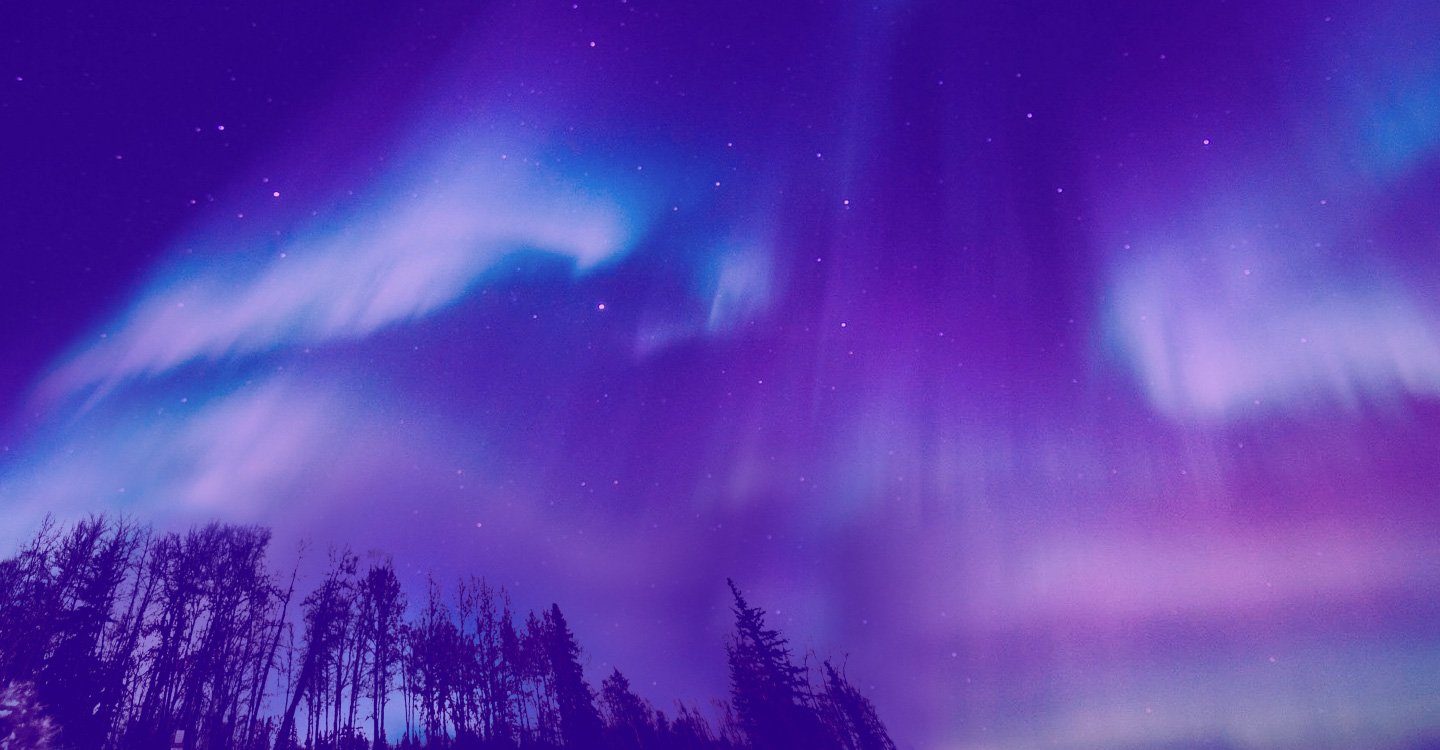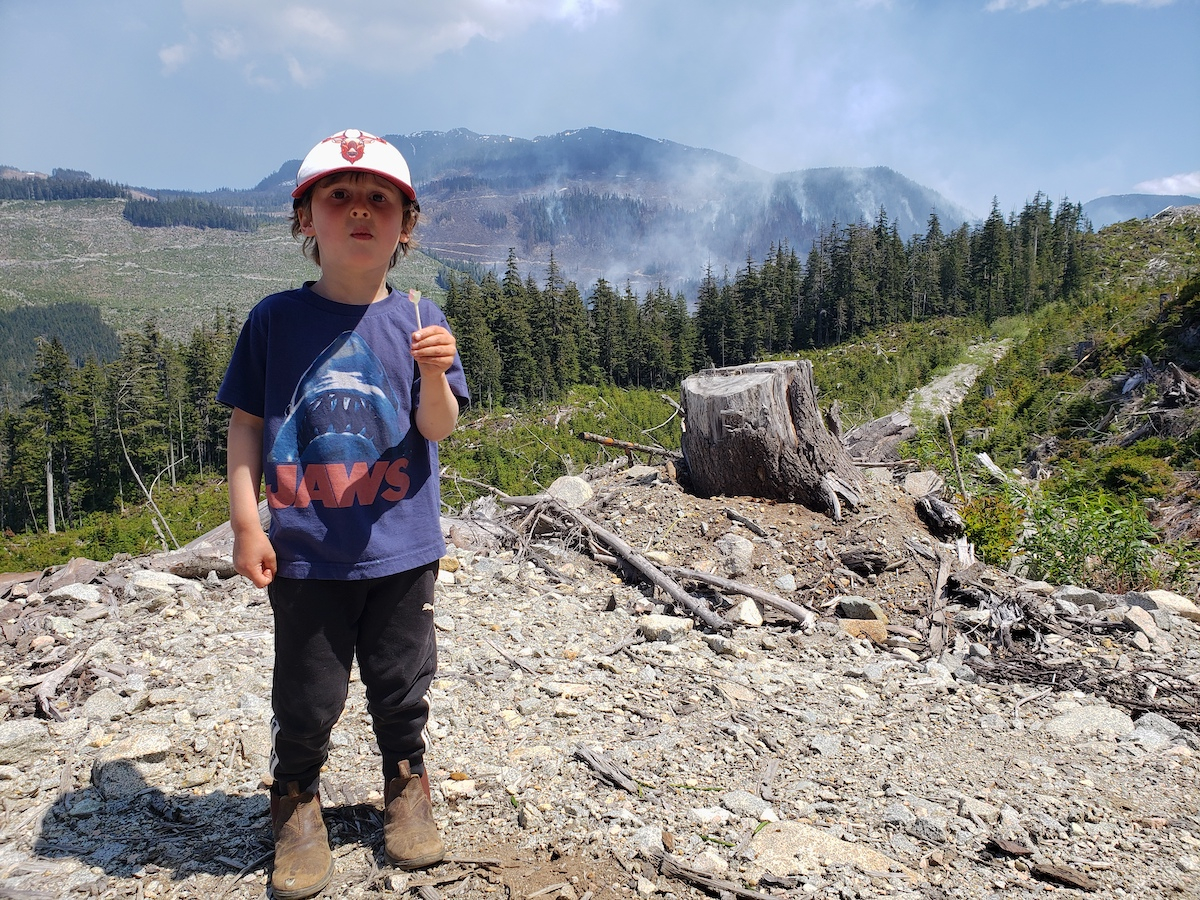
Get Canada's Climate Weekly delivered to your inbox.
Dress rehearsal for the future
Good morning!
With a wave of wildfires making headlines across the country and beyond our borders, this week has been a tough one for many people. Whether you’re fleeing fire, dealing with smoke or watching the skies in anticipation of what’s to come, I hope you and yours are as safe as you can be.
As of Friday, there were 422 wildfires burning in nearly every province and territory, 219 of them out of control. According to at least one climatologist, this is just a “dress rehearsal” for the future. As climate change makes for more hot, dry weather, the conditions that set the stage for wildfires are becoming more common. We will live through more days like the ones we saw this week, when smoke blanketed Ottawa, Kingston, Montreal, Toronto and the U.S. East Coast. And if you’re like me at all, those days will make you grieve — for your family and friends, for your home, for the planet.
This week, I talked to two mental health experts about what it means to live through times like these. They shared some advice on how to cope with the many feelings the climate crisis brings up and how we can find hope and solidarity without sugarcoating the challenges we face. Read on to find out more.
As always, you can let me know what you think of this newsletter at dana@nationalobserver.com.
Have a good weekend and stay safe.
— Dana Filek-Gibson
Looking for more CNO reads? You can find them at the bottom of this email.

A mess of emotions
All week, I’ve had a gnawing thought in the back of my mind. It arrived Tuesday morning, when the air started to smell like a bonfire in Toronto, and lingered as I put on a mask to go outside. The next day, when schools limited outdoor activities and I thought of my nephew stuck inside on what was otherwise a perfectly good summer day, it popped up again. The same thought came back later that night, as I was doomscrolling, watching New Yorkers tweet through their worst air quality in recent memory and worrying about my brother, who lives there. All week, it’s been eating at me: there is nowhere to hide from the climate emergency.

Of course, I already knew this — I’m sure you did, too. And yet, the smoke that enveloped my neighbourhood this week still caught me off-guard. Suddenly, I was worried about restocking N95 masks and making sure my family was OK.
I’m not the only one wrestling with a swirl of emotions over climate change. As we navigate this changing world, more and more people are experiencing eco anxiety — an umbrella term that encompasses the many forms of distress a person can feel about the climate emergency and how it affects both their own future and the planet’s. This is just one of several emotions climate change can bring up — there’s also grief, frustration, sadness, helplessness, anger and more.
Each of these feelings can run the gamut from small, lingering worries to full-on panic attacks. Not everyone sees them as wholly negative, says Inês Lopes, a psychologist and environmental and social justice educator based in Montreal. Yes, they can be debilitating, but they can also be motivating. “There's a big spectrum,” she says, and the positive and negative “often coexist” in the same person — someone might despair about the destruction of the planet but also be moved to act because of it.
Whatever form it takes or reaction it elicits, this mess of emotions is becoming more common as climate change upends the world we thought we knew — and for some of us, it’s happening for the first time. Inês was born in Portugal, where wildfires have been a problem for decades. Several years ago, she actually helped a community put out a fire and remembers “the panic in everyone’s eyes.”
“I've been hoping for this not to get here because I know how bad it is,” she tells me. But now, it’s not just her environmentalist friends who are worrying about the climate crisis, she says. “It's reached also those people … that are not usually concerned about these issues. They're now also kind of getting it.”

If you’re sitting with any of these feelings right now, Nancy Blair, a registered counselling therapist in Nova Scotia and member of the Climate Psychology Alliance, stresses that it’s “actually a rational response.” Eco anxiety is not a mental illness, she says.
“Something is wrong with what's happening in the world,” she tells me. “That doesn't mean there's anything wrong with you.”
Still, we all have to find ways to live with the reality we’re in. When we talk, Inês is very clear that she doesn’t want to sugarcoat the truth: the climate crisis is serious. We are not acting fast enough. And even if we start acting today, there is a cost to our inaction up till now.
But that doesn’t mean she’s not still hopeful. As a psychologist, Inês cares for clients experiencing eco anxiety, but she also does interviews like these “to raise awareness about deeper structural collective changes we need to make in order to prevent this, or at least mitigate this for people,” she tells me. “My job is more to try to prevent this than to try to fix it after.”
She advocates for “messy hope,” a phrase she credits to Meghan Wise of the University of British Columbia’s Climate Hub. Messy hope recognizes the many complex, even contradictory emotions a person might feel about climate change — anxiety, hope, grief, frustration and so on — and makes space for all of them.

I asked Nancy and Inês for some tips on how to cope with eco anxiety. Here’s what they recommend:
Get talking
Bottling up your feelings never ends well. Once a month, Nancy hosts a Climate Café in her area, where people come to talk about how they’re feeling about the climate crisis and how it’s affecting them. The Climate Psychology Alliance has a list of international support and conversation groups here, but you can also seek out local Climate Cafés in your area online.
“It's partly learning how to talk about [eco anxiety], because this is new,” Nancy says.
As we head into what could be a rough summer for wildfires, she also recommends reaching out to those around you, not even necessarily to talk about climate change but just to connect. A question she regularly asks her clients is: “Do you know your neighbours?”
Having a connection with someone close by can give you “a sense of security” in the face of an emergency, she explains.
“We live in such a state where people are so isolated. And isolation is psychologically incredibly damaging… To get to know who's next door, who's across the street, it makes it easier to go through an emergency.”
Get empowered
Taking action on climate change can benefit not only your own well-being but the world around you. Individual actions are a great place to start, but if you’re able to get involved, collective action is even better, Inês says.
“One of the things we encourage is, get with a group of like-minded people. Even if you don't know how to, they will help you feel empowered. So we're working on self-efficacy, instead of feeling helplessness” — another common eco emotion, Inês says.
Nancy agrees. “If you do something, it gives you a sense of what we call agency, which means that it matters what I choose, it matters what I do, which, again, makes you feel better and more in control of the situation.”
Not only that, collective action is the stuff that can bring about bigger, more lasting change. Take, for example, the Fairy Creek protests in B.C., which are believed to be the biggest act of civil disobedience in Canadian history. A group of people got together to oppose old-growth logging, and their action helped influence forestry policy in the province. Similar stories of resistance have halted fossil fuel projects on the East Coast, too.
Take care of yourself
In addition to the usual self-care recommendations — practising relaxation and mindfulness, eating well, exercising and using positive self-talk — limiting your media intake can help cut down on some anxious feelings, Nancy says. “Get a sense of what is the amount that is good for you.”
Seek support
Many people will struggle with eco anxiety at one point or another. Your support system might include friends, family members and even community or collective action groups you’re a part of. But if you’re still finding you struggle with these feelings, you can also seek help from a mental health professional. The Climate Psychology Alliance has a directory of climate-aware therapists here.
Get prepared
In Nova Scotia, Nancy says residents are asked to have 72 hours of essentials — medication, food, water and so on — on hand in the event of an emergency, climate-related or otherwise. She suggests everyone follow suit, no matter where you live. Maybe nothing happens, maybe you don’t need it. But if you find yourself in an emergency, being prepared can go a long way to lowering your stress levels.
More preparedness “is practical, but also psychologically gives us control over our lives, and we need that right now,” she says.
More CNO reads

Inside a Nova Scotia evacuation zone. A Halifax-area woman is waiting to return home after she and her family fled roughly two weeks ago as a wildfire approached, Cloe Logan reports.
In northern Quebec, people pray for “heavy, heavy rain.” Hundreds of wildfires are scorching Quebec's Abitibi-Témiscamingue region, forcing most of Barriere Lake First Nation's members to evacuate, Marc Fawcett-Atkinson reports.
Say these names. Our unprecedented wildfire season is made more possible by climate change — and climate change isn’t happening by accident. It’s time to name those responsible, writes CNO publisher Linda Solomon Wood.
An Ontario man’s first brush with wildfire. “When we got there, we quickly realized it was beyond our meagre resources,” Mike Coates told reporter Isaac Phan Nay. “It had already started to climb up trees.”
“We had smoke and fire very close.” Abdul Matin Sarfraz tells the story of a Saskatchewan family driven from their home twice in the last month due to wildfires.
China isn’t an excuse for climate inaction. Canadian Conservatives have landed on a new explanation for why we shouldn’t do anything about a warming planet, Max Fawcett writes.


